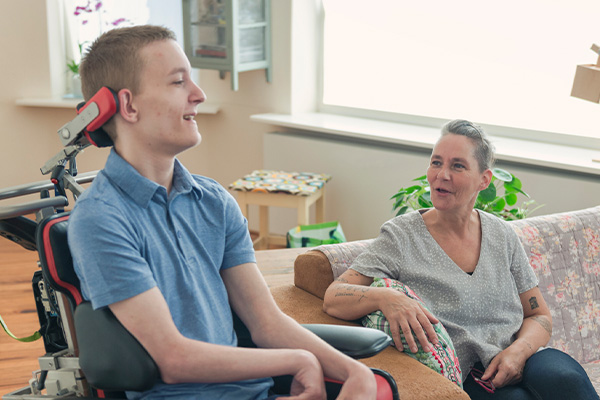After being diagnosed with ALS, you are seen in the clinic on a regular basis throughout your ALS journey.
The care team will determine the best treatment options for you following a complete evaluation. Recommended treatment will depend on your medical history, a physical exam and the severity of your condition. Your personalized treatment plan may include lifestyle modification and/or medication management to help alleviate symptoms that change and evolve during the course of the disease.
Our multidisciplinary team is committed to helping people living with ALS maintain independence longer, enjoy an improved quality of life and extend their life.
This is accomplished through:
- symptom management
- assistive technology
- adaptive equipment
- education
- care services
- emotional support
Treatments may include:
Physical and occupational therapy
These therapies can help you stay strong and make the most of the abilities you still have.
Speech therapy
This can help you with coughing, swallowing, and talking after weakness in the face, throat, and chest begins.
Supportive devices and equipment
These can help you stay mobile, communicate, and do daily tasks like bathing, eating, and dressing. Some examples are canes, walkers, wheelchairs, ramps, handrails, raised toilet seats, and shower seats. You can also get braces to support your feet, ankles, or neck.
Medication
These may help slow the progression of ALS, relieve your symptoms, and keep you comfortable. There are medicines that can help with many of the symptoms you might have. These symptoms may include muscle problems (stiffness, cramps, twitching), drooling and extra saliva, depression and mood swings, and pain.
A feeding tube
This can help you get enough nutrition to stay strong as long as you can.
Breathing devices
They can help you breathe more easily as your chest muscles weaken.



